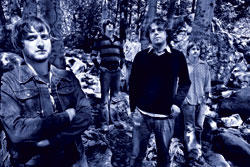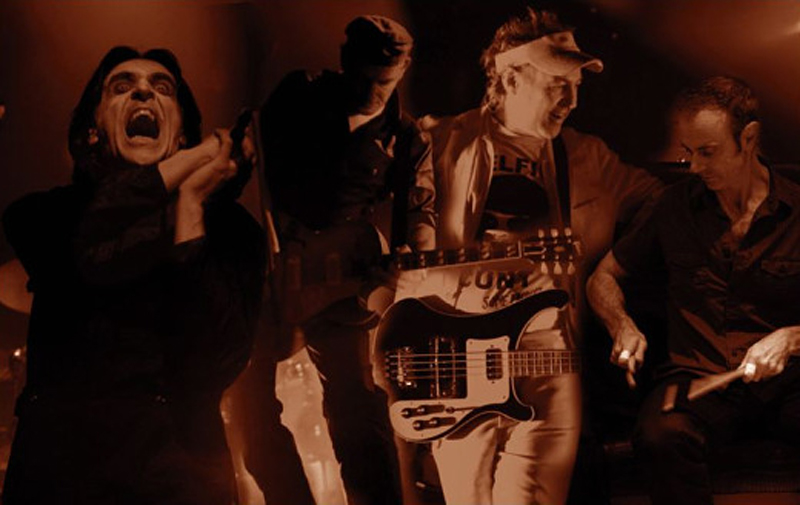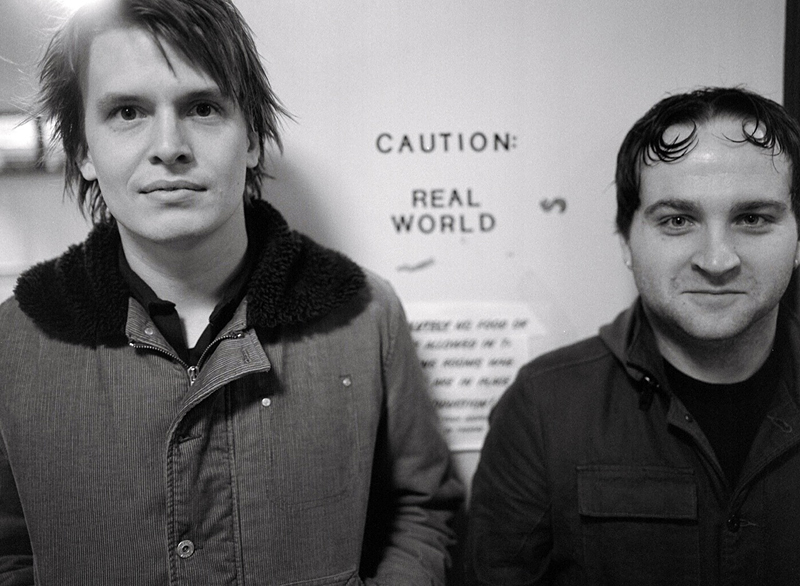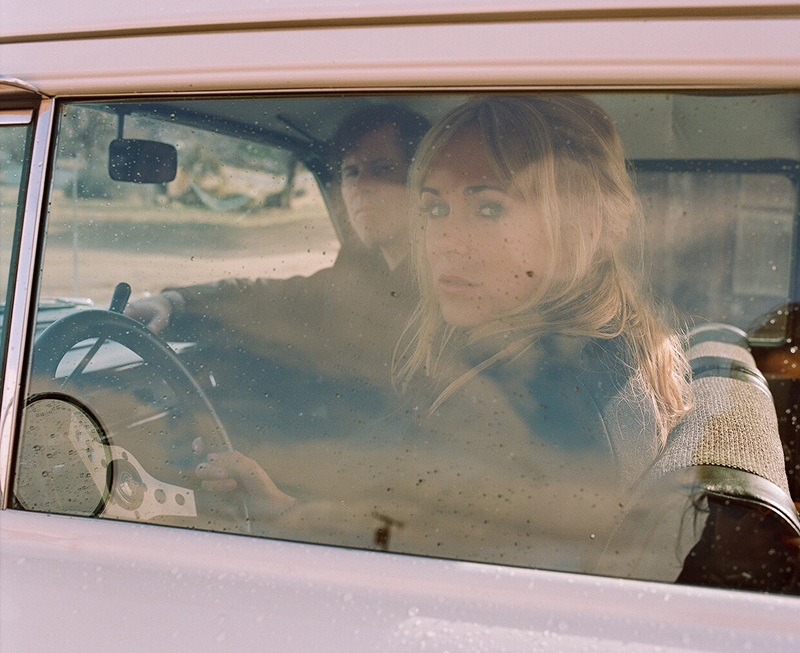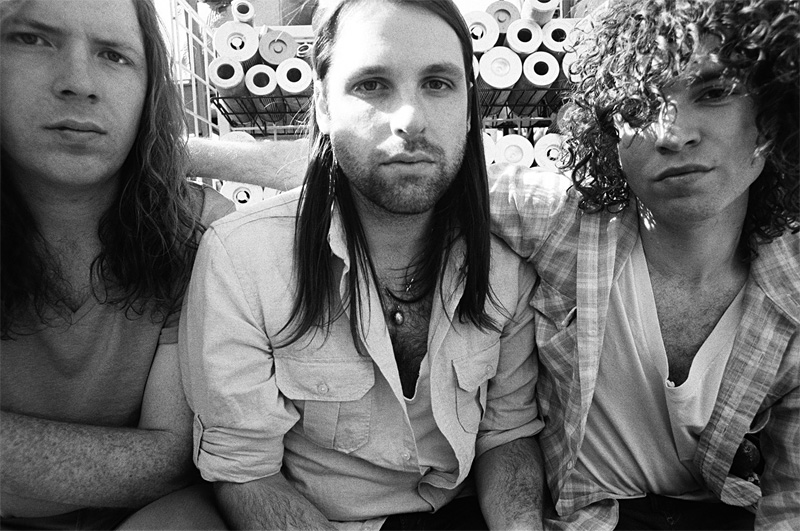For all of the Wilco comparisons the Broken West regularly receive, a film about the making of the quintet’s debut album, I Can’t Go On, I’ll Go On, would less resemble the turmoil-packed Wilco documentary I Am Trying to Break Your Heart than another cinematic, um, classic.
“It’d be like Dumb and Dumber, everyone making jokes about big jugs and stuff,” says bassist-singer Brian Whelan. “The only kind of deep, dramatic emotion I remember feeling when we were recording was a crazy happiness when something was finally done and it sounded great.”
He must have been in a near-constant state of ecstasy, because there’s hardly a sonic stumble or dud melody across the album’s 12 tracks. The Wilco associations aren’t entirely unjust—the insouciant vocals and organic, densely constructed jangle of songs like “Down in the Valley” and “Slow” have a sound and spirit vaguely akin to the sunnier moments on Summerteeth. But there’s no blatant thievery here: What the Broken West appear to be doing is swimming around in a pool of ’60s and ’70s influences—the Byrds, the Hollies, Big Star, the Beatles, the Stones—and then forging a path that occasionally converges with a gaggle of modern-day power-pop and psych-pop practitioners.
Whelan—who grew up in Kirkland, then moved to California when he was 14—first connected with singer-guitarists Ross Flournoy and Dan Iead, drummer Rob McCorkindale, and keyboardist Scott Claassen in the summer of 2004. The band initially christened itself the Brokedown (a cease-and-desist from a similarly monikered Chicago band forced the name change last fall), quickly recorded an EP entitled The Dutchman’s Gold, and then entered a Rancho Park, Calif., studio in the summer of 2005 to begin work on their self-financed full-length, which they crafted over the course of a year, as their day-job schedules would allow.
“We didn’t have a label, and we didn’t really have a plan for this record,” says Whelan. “It was very loose in the sense of, ‘I guess we’ll send this out to some labels when we’re done.’ But we took it very seriously and got to learn the lessons about working together.”
Admitting that they’re all “guys with huge egos,” Whelan explains that the learning curve included the usual: devel-oping the diplomacy necessary to handle conflicting creative visions (without any tantrums or Tweedy-like vomiting), and ultimately determining what methods would best serve the songs in the studio—all five members are multi-instrumentalists, and they decided that those with the best ideas would play on a given track, even if that meant that others were excluded entirely from the recording.
“I’m definitely better about that stuff now than when we first started,” Whelan chuckles, “but we figured it all out without any real drama, and also we just learned how to write good songs and how to be a great live band, and we got to do it without anyone hassling us, without having to watch a clock, without worrying about what a music critic was gonna write. It was that innocence that I think is audible in the music, which we’re obviously not gonna have again.”
Indeed, the stakes were raised when acclaimed indie Merge Records dug the sound of I Can’t Go On and signed the Broken West in 2006, immediately propelling them into the world of heavy touring, sales charts, and non- stop interviews.
Not that Whelan is complaining, though. “The next album will be a different experience, and I’m looking forward to that. Every band has that first one, you know, and I think a lot of them are infused with that kind of thing where you’re just getting into the music business and all of that. The next record will be its own thing, and it probably won’t be that sorta wide-eyed innocence, but that doesn’t mean it won’t be good.”
And when asked if there’s a band whose career the Broken West would like to emulate, Whelan doesn’t hesitate.
“We wanna be like Tom Petty and the Heartbreakers. That’s the model. You wanna have the great writer, the great songs, the solid rhythm section, the great lead guitarist that can take you in a hundred different directions so you don’t sound like Wolfmother. . . . I don’t wanna be the fuckin’ Velvet Underground, where you put out three or four records and then the band breaks up, never gets back together, and you never even get paid for those records—all you get is a lifetime of other bands ripping you off. Tom Petty and the Heartbreakers, that’s where it’s at. They’ve been around for, like, 30 years, have all these great songs, keep putting out great songs, are humble, and are still a killer live band. That’s what we wanna be when we grow up.”
